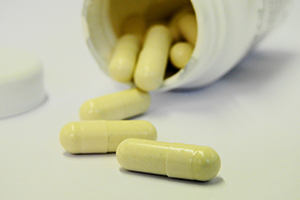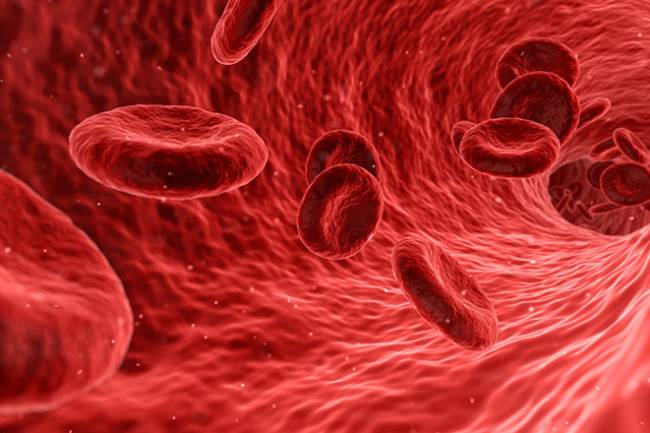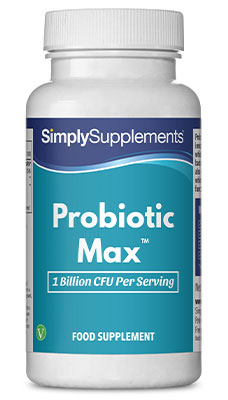Health Benefits of Probiotics

Probiotics are microbial cultures popularly believed to positively impact one’s health. A range of different “friendly bacteria” may be used in probiotics but all are originally derived from those isolated from healthy individuals. As a result, in most cases they are thought to be a very safe treatment for conditions affected by the gut.
Why Use Probiotics?
The gut is home to a complex and diverse community of good and bad bacteria, both of which play important roles in the maintenance of good health. However, finding the right balance between the two is essential.
Good probiotic bacteria produce enzymes which break down nutrients in the food we eat and line the intestines with a protective layer to defend against harmful pathogenic invaders.
Many different factors can disrupt the balance between good and bad bacteria, particularly medications, stress, poor diet and the environment. If bad bacteria begin to dominate, the whole digestive system becomes unbalanced resulting in digestive issues, bloating, poor nutrient absorption, and a weakened immune system.
Probiotics are taken to help re-establish the optimal balance, thus ensuring optimum health.
There are two main groups of probiotics; Lactobacillus and Bifidobacterium. It is thought that Lactobacillus strains can offer some relief from diarrhoea and lactose intolerance, while Bifidobacterium strains may be beneficial for IBS.
It is worth underlining here that probiotic foods and supplements may contain different strains of these helpful bacteria. Furthermore, the impact of these different strains can differ, depending on your reason for taking probiotics. As a health-conscious consumer you will therefore either want to select a “general purpose” solution that contains a broad range of bacteria, or carefully select one that seems to address the health issue in question.
Benefits of Probiotics
Probiotics are a rich topic of research for scientists, and there is a growing list of potential benefits that probiotic products may offer. Of these, possibly the best-known is the impact of probiotics on digestive problems, with a particular emphasis on irritable bowel syndrome (IBS).
Irritable Bowel Syndrome
 IBS is recognised as the most common functional digestive order, believed to affect up to 25% of the population. It is characterised by digestive problems such as stomach pain, bloating and gas, often associated with persistent diarrhoea. IBS research suggests that the condition may disappear from time-to-time, only to return with a vengeance.
IBS is recognised as the most common functional digestive order, believed to affect up to 25% of the population. It is characterised by digestive problems such as stomach pain, bloating and gas, often associated with persistent diarrhoea. IBS research suggests that the condition may disappear from time-to-time, only to return with a vengeance.
As yet, scientists have not conclusively proven the cause of irritable bowel syndrome but bacteria in the gut - often referred to as “microfauna” or “microbiota” - are believed to be implicated. This belief stems from the fact that scientists have discovered significant differences in the bacterial loads of individuals suffering from IBS, when compared with non-sufferers.
Furthermore, there is growing evidence that supplementing gut bacteria through the use of probiotics demonstrates clinical improvements in many people.
One study enrolled 50 IBS sufferers, and provided them either with a probiotic supplement or a placebo for a period of four weeks to assess any impacts. The probiotic group reported a 52% improvement in stomach pain whilst the placebo-takers only saw an 11% improvement.
On a wider scale the same study looked at a combined metric for all commonly-experienced symptoms of irritable bowel syndrome and reported a 49.6% improvement with probiotics. This positive data shows strong improvement in IBS symptoms in response to improved gut flora. However, this is far from the only such study…
As has been previously stated, not all strains of probiotic bacteria necessarily have a positive impact on all outcomes. Another study therefore tried comparing two different strains. Volunteers with IBS were split into three different groups. One group received Lactobacillus salivarius, the second Bifidobacterium infantis, and the third a placebo. What was notable from the results were that after an 8 week dosing period it was Bifidobacterium that showed far superior results, demonstrating significant improvements in measures of stomach pain, bloating and bowel movements when compared to either the placebo or the other bacterial culture.
A “meta-analysis” is the name given to a scientific analysis where the results from numerous past experiments are gathered, collated and studied. The intention is to provide an overview of the scientific discoveries to date, adding detail to the subject in question. The benefits of probiotics for IBS have undergone a number of meta analyses in recent years. One of the most extensive included the results of twenty different studies, covering 1400 different patients. Their findings confirm that the use of probiotics is associated with improvements in all general IBS symptoms.
Diarrhoea
It might seem odd to separate diarrhoea from IBS bearing in mind that it tends to be one of the most common symptoms, but there is good reason for this. Namely, diarrhoea may also be caused by a range of other factors. Most notable of these is the use of antibiotics.
By their very nature antibiotics are designed to kill off bacteria, but are often not specific in their effect. As a result, antibiotics have been shown to equally reduce the helpful colonies of bacteria in the digestive system. This frequently results in bouts of diarrhoea, and it is believed that up 30% of people undergoing antibiotic treatment end up experiencing diarrhoea.
Not only is diarrhoea an unpleasant condition for the patient, but of course rapid expulsion of gut contents can also mean that the antibiotic treatment itself is less effective, as it remains in the body for a shorter period of time.
Fortunately there is a growing body of evidence to suggest that probiotics may help to establish the optimal balance, thus eliminating antibiotic-associated diarrhoea (often known by the acronym of AAD).
A study involving 766 children being prescribed antibiotics found that when combined with probiotic supplements the risk of suffering from diarrhoea fell from 28.5% to just 11.9%. Other studies have shown that even if probiotics are given once diarrhoea is experienced the impacts tend to be lessened. One study investigating the effects of five different “healthy” bacteria on diarrhoea found that, on average, they reduced diarrhoea duration by a day or more.
It is therefore believed by many scientists that it may be wise to take probiotics alongside any antibiotics, but that probiotics may also offer benefits for people suffering from more general diarrhoea, whether this is persistent or not.
Constipation
 This is where the probiotic story really started to get interesting. While the research here is rather thinner on the ground, some studies have indicated that probiotics may also be beneficial for constipation.
This is where the probiotic story really started to get interesting. While the research here is rather thinner on the ground, some studies have indicated that probiotics may also be beneficial for constipation.
As an example, twenty children suffering from constipation were provided with a daily dose of probiotic supplement or a placebo. The experts in question then recorded the frequency of bowel movements to identify the impact of probiotics. In the probiotic group bowel movement frequency more than doubled, while stomach pain halved.
The obvious question is how probiotics could potentially both assist in cases of diarrhoea and constipation - surely the actions are opposed?
Up until recently it was believed that the primary method of action by the bacteria in probiotics was to improve digestion, out-compete less beneficial bacteria and to control the permeability of the gut lining. This finding, however, suggests that something else might be at play.
Indeed, if recent studies are to be believed then it seems there is increasing evidence that the bacteria contained in probiotic supplements may actually help to impact the immune system directly.
The white blood cells that fight infection are not uniform; a range of different cells are involved in mounting an immune attack. One such type is known as a “T cell”. T cells respond to messages from other parts of the immune system - a bit like calling in the army. Studies have found that IBS sufferers can experience very different levels of t cell activity than those not affected.
This process - that has been referred to as “immune activation” - suggests that the bacterial growth stimulated by probiotics don’t just have a physical impact on the gut but may also help to modulate immune responses. It is in this way that probiotics may simultaneously be able to assist with diarrhoea or constipation, as the mode of action is rather deeper and more complex than initially realized.
Eczema
The potential impact of probiotic bacteria on immunity is given further weight by reports that they may improve allergies such as eczema.
A study in Finland gave expectant mothers a probiotic supplement each day for two months leading up to the expected birth date and during the first two months of breastfeeding. At this point, probiotic supplementation was ceased and the incidence of eczema was tracked in the children for a period of two years. The results showed that children who had been exposed to probiotics - thanks to their mother’s intake - were significantly less likely to develop eczema.
These hopeful results were expanded further in another study, where babies showing symptoms of eczema were weaned off breast milk and onto a formula enriched with probiotics. Two months later, the group of babies ingesting the probiotic formula saw significant improvements in their condition when compared to non-supplemented infants.
The scientists responsible pointed out that these results once again indicate that the potential benefits of probiotics may be much greater than initially thought. There is now growing evidence that probiotics may help to reduce inflammation and modulate immune responses to allergens.
Sources of Probiotics
 There are several different sources of probiotics. A popular food source is a live-cultured yogurt and while there are many different brands available, try to avoid yogurts which are loaded with fructose corn syrup and artificial sweeteners.
There are several different sources of probiotics. A popular food source is a live-cultured yogurt and while there are many different brands available, try to avoid yogurts which are loaded with fructose corn syrup and artificial sweeteners.
Other food sources include sauerkraut (made from fermented cabbage and also rich in vitamins) and kefir (a fermented dairy product made from goat’s milk and fermented kefir grains). Always look for foods which are fermented, not pasteurised, because the pasteurisation process kills any good bacteria.
Probiotic supplements also offer a convenient and cost-effective alternative. These often contain several different species of live bacteria, including the popular strain Lactobacillus acidophilus, so have the potential to offer a range of positive health benefits.
How Much Should I Take?
Bacteria are of course microscopic in size, so the obvious question is how much you should take. Most supplements are measured in either milligrams or micrograms but probiotic bacteria are rather different. Here the standard unit of measurement is a “colony forming unit” or CFU.
Scientists are still carrying out experiments to decide on the optimum intake for health, but most scientific studies which have shown positive results have provided between one billion and five billion CFUs.
One particular benefit of supplements over probiotic foods is that it is quite easy to tell what concentration of bacteria they contain. Dosing therefore becomes simple. When it comes to fermented foods made at home it can be very difficult to ascertain the CFU content and therefore how much should be consumed.
Side Effects of Probiotics
Their excellent safety profile means that many people turn to probiotics at the first sign of digestive issues. It is important to always follow the dosage instructions on the label. For some people, they may result in mild side effects such as an upset stomach, diarrhoea, gas and bloating, particularly in the first couple of days. These symptoms should disappear as the digestive system rebalances itself, however if symptoms continue beyond that, discontinue use.
Some experiments have indicated adverse effects for those suffering from Crohn’s disease, so it is recommended that sufferers avoid supplementing with probiotics without suitable medical guidance.
Probiotics are sold under food law in the UK and so are not heavily regulated. Therefore it is essential that you buy from a respected retailer. Look for high quality probiotics with live bacteria – the bacteria needs to be live when administered in order to be effective – and high potency levels.
Each person responds differently to different probiotic strains and strengths, and some find certain strains to be more effective than others. If one strain doesn’t work, you may find a different strain to be beneficial.
If you suffer from any serious underlying health conditions then consult your GP before taking probiotics.
Summary
Probiotics help to supplement the existing colonies of friendly bacteria in your gut. In doing so, they may help improve common digestive problems like stomach pain, bloating and gas. Through a variety of means, they may also positively impact diarrhoea and, to a lesser degree, constipation. There is also growing - but not definitive - evidence that gut microbiota may actually modulate immune responses, leading to deeper improvements in overall health.
Shop for Probiotic Supplements here

Sources:
http://www.sciencedirect.com/science/article/pii/S0091674912014649
http://onlinelibrary.wiley.com/doi/10.1046/j.1365-2222.2000.00943.x/full
http://onlinelibrary.wiley.com/doi/10.1111/j.1399-3038.2009.00745.x/full
https://www.ncbi.nlm.nih.gov/pmc/articles/PMC4288092/
https://nutritionj.biomedcentral.com/articles/10.1186/1475-2891-6-17
https://www.karger.com/Article/PDF/63075
https://www.ncbi.nlm.nih.gov/pubmed/17300285/
https://www.ncbi.nlm.nih.gov/pmc/articles/PMC3155061/
http://onlinelibrary.wiley.com/doi/10.1111/j.1365-2036.2008.03750.x/full
http://journals.lww.com/jcge/Abstract/2004/07002/Probiotics_in_The_Treatment_of_Irritable_Bowel.14.aspx
https://www.ncbi.nlm.nih.gov/pmc/articles/PMC2709042/
http://journals.lww.com/jcge/Abstract/2011/11001/Probiotics_for_Prevention_and_Treatment_of.12.aspx
https://jamanetwork.com/journals/jama/fullarticle/1151505
http://www.sciencedirect.com/science/article/pii/S0022347606003830

 Nicole
Nicole 

























